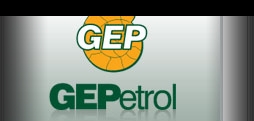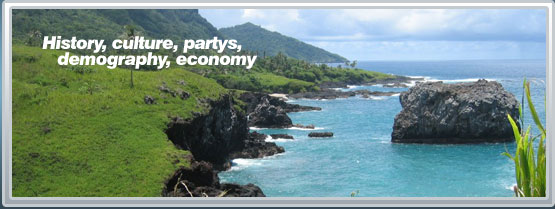|
EQUATORIAL GUINEA |
|
Equatorial Guinea is a young republic in the Central Africa. Equatorial
Guinea is bordered by Cameroon on the north, Gabon on the south and
east, and the Gulf of Guinea on the west, with the islands of São Tomé
Formerly known as the Spanish Guinea, it gained its independence on October 12th, 1968 within the frame of the decolonization processes promoted by the United Nations.
Equatorial Guinea territory comprises the continental region (called "Rio Muni" or "Mbini") and a large number of islands, among which we can find Bioko, where the capital city, Malabo (called Santa Isabel during the Spanish colony), is located.
Its post-independence name is suggestive of its location near both the equator and the Gulf of Guinea. Equatorial Guinea is currently the only independent territory in the
Spanish Africa. » History He called it Formosa ("Beautiful"), but it quickly took on the name of its European discoverer. The islands of Fernando Pó and Annobón were colonized by Portugal in 1474. The Portuguese retained control until 1778, when the island, were assigned to Spain in exchange for territory in the American continent. Between 1926 and 1959 they were united as the colony of Spanish Guinea, being dependant from the Viceroyalty of the River Plate for administrative purposes. In 1968, it achieved its independence from Spain. » Government Presidential elections take place every 7 years. The next election will
take place on December 2009. Every person above 18 years old
must vote. The president, in turn, designates the Prime Minister
(currently, Ricardo Mangue Obama Nfubea). There is a single legislative
chamber: the Chamber of the People Representatives, composed of
100 representatives, elected by direct popular vote, for a 5-year » Administration » Economy Equatorial Guinea’s main wealth comes from oil and its derivatives, with an extraction estimated in 300 thousand oil barrels/day. Other relevant areas are forestry, and agriculture, with products such as cotton, coffee, sugar cane, tropical fruits, etcetera. Also, it is worth to point out livestock on high lands, and minerals, specially, precious metals » Demography » Ethnography The national population, which represents 99% of the population, is essentially Bantu (Fang), in Mbini, and Bubi in Bioko. The main ethnical groups are distributed in the following way: Fang
(72% of the population, in Mbini), Bubi (15%, in Bioko), Fernandinos
(in Bioko), Combes in the Continental Region or Río Muni and Annoboneses There is also a minority of European whites of Spanish descendant, and people of mixed races. » Languages » Religion » Cities » Names The country has one university, la Universidad Nacional de Guinea Ecuatorial (UNGE) with a campus in Malabo and a School of Medicine in Bata. The School of Medicine in Bata is mainly supported by Cuba, and staffed by Cuban medical educators and physicians. The country has several active organizations which main objective is to contribute to population literacy. Most of the economic support, in this sense, comes from the Spanish government. » National Holidays
|
|
|
||
All Rights Reserved. © GEPoil & Petroleum Limited. |
||

